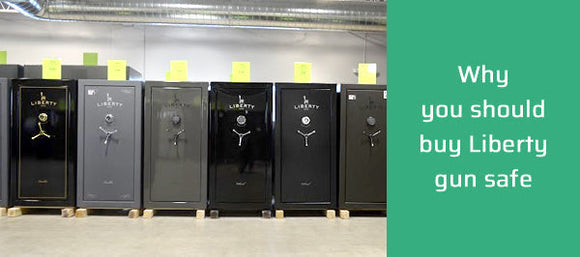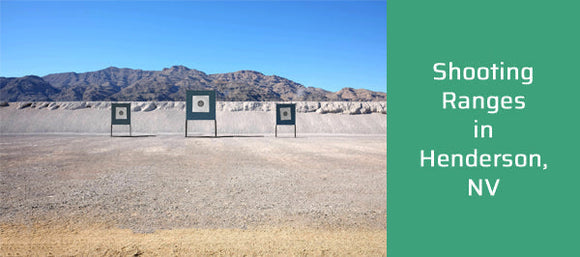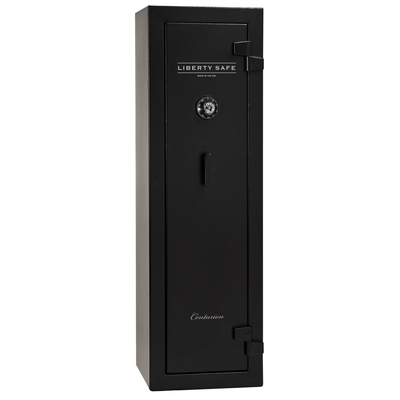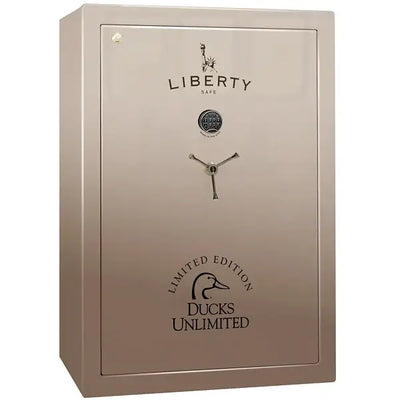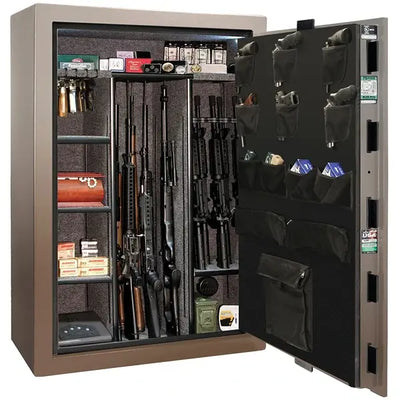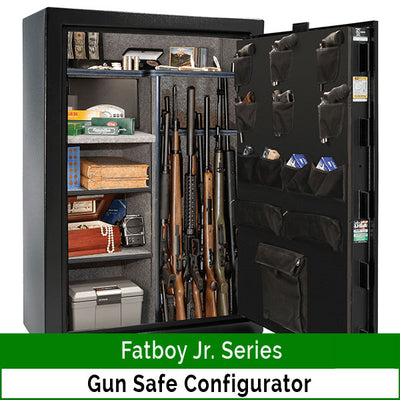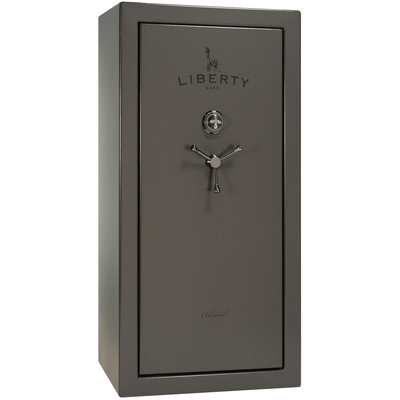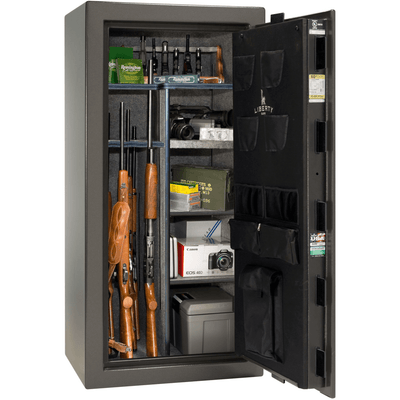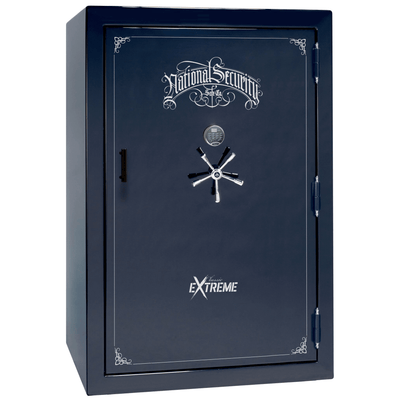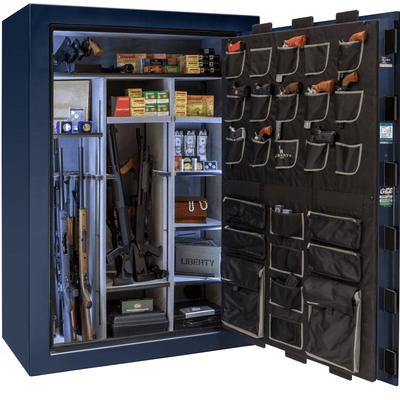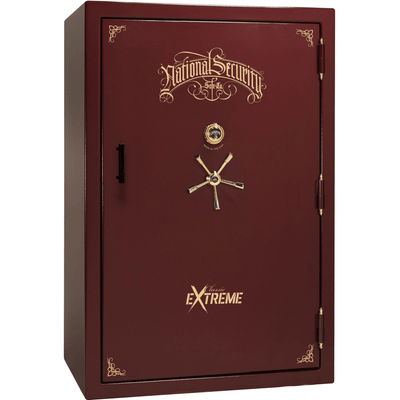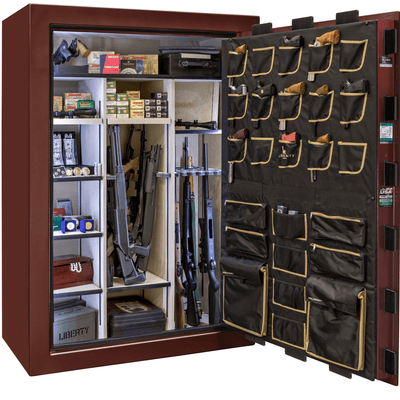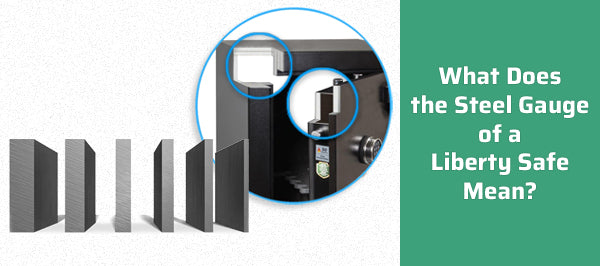
What Does the Steel Gauge of a Liberty Safe Mean?
When it comes to safeguarding our firearms and valuables, the strength and durability of safes play a pivotal role. The steel gauge of a Liberty safe is an important factor that determines its strength and durability. The steel gauge thickness of the safe determines its level of security and resistance to external damage or break-ins. Understanding the nuances of steel gauge can help you make an informed decision when selecting a safe.
What is Steel Gauge?
The term steel gauge refers to the thickness of the steel sheet used in manufacturing. It is a crucial factor in determining the strength and durability of products made from steel. The steel gauge meaning is often misunderstood, but it’s essentially a standardized unit of measure that indicates the thickness of the metal.
What Gauge Steel Is Thicker?
Here’s a simple rule to remember: the lower the gauge, the thicker the steel. Converting the steel gauge thickness into inches helps you grasp how it works. For instance, a 12-gauge steel plate is 7/64 inches thick, whereas a 14-gauge steel plate is slightly thinner at 5/64 inches. This difference might seem minor, but in terms of security, it’s substantial. The thicker the steel, the more resistant it is to external forces, whether they be from nature or burglars.
How Thick is the Gauge Steel of a Liberty Safe?
Common gauge steel for Liberty safes typically ranges from 14 to 7 gauge, with the lower numbers indicating thicker steel. The different gauges of steel for gun safes are chosen based on the level of security required. Liberty safes utilize these varying gauges to cater to different security needs, whether it’s for residential or commercial use.
Liberty safes steel gauge thickness chart
| Number of gauge | Thickness in fractions of an inch | Thickness in decimal parts of an inch | Thickness in millimeters |
|---|---|---|---|
| 7 | 3/16 | 0.1875 | 4.7625 |
| 8 | 11/64 | 0.171875 | 4.365625 |
| 9 | 5/32 | 0.15625 | 3.96875 |
| 10 | 9/64 | 0.140625 | 3.571875 |
| 12 | 7/64 | 0.109375 | 2.778125 |
| 14 | 5/64 | 0.078125 | 1.984375 |
The thickness of steel gauge plays a significant role in a safe’s ability to withstand external damage and resist break-ins. Thicker steel provides better resistance to external forces, whether from natural elements or potential intruders.
Steel gauge also impacts a safe’s ability to withstand fire. Thicker steel maintains a safe internal temperature for longer during a fire, offering superior protection to your valuables.
Does Thicker Steel Always Mean Better Security?
While a 7 gauge thickness safe offers higher resistance to forced entry, thickness alone isn’t the only factor in safe security. Door construction, locking mechanisms, and reinforced edges also play a crucial role.
Many safes combine multiple security features, including reinforced steel doors with anti-pry tabs, drill-resistant hard plates inside the safe, multiple locking bolts that extend deep into the frame.
A 7 gauge steel safe provides exceptional strength, but pairing it with advanced security features ensures the best protection.
Steel Composition and Its Role in Safes
While the steel gauge meaning determines the thickness and strength of a safe, the actual composition of steel also plays a vital role in durability and security. Understanding the gauge of steel meaning is important, but combining thicker steel with high-quality alloys results in an even more secure safe. If you are considering a 7 gauge steel safe, it’s beneficial to check if it uses hardened steel alloys to maximize security.
Choosing the Right Steel Gauge for Your Liberty Safe
Choosing the right steel gauge for your Liberty safe is a balance of security, cost, and placement. Consider the level of protection you need: the lower the gauge number, the thicker the steel, and the higher the security. However, thicker steel also means a heavier safe, which may influence where you can place it in your home.
When selecting a steel gauge for your safe, think about the potential threats and the value of the items you’re protecting. A higher gauge may suffice for basic security, but for maximum protection, a lower gauge would be more appropriate. Remember, the investment in a quality safe will reflect its ability to protect your assets in the long run.
In summary, when assessing the security level of a safe, always consider the gauge of steel used. The lower the number, the thicker and more secure the safe will be. With Liberty safes' range of gauges from 14 to 7, you have the power to choose the right balance of protection and practicality for your needs. Remember, investing in a lower gauge steel safe means investing in peace of mind, knowing that your valuables are secured behind some of the most robust materials available.
Written by



